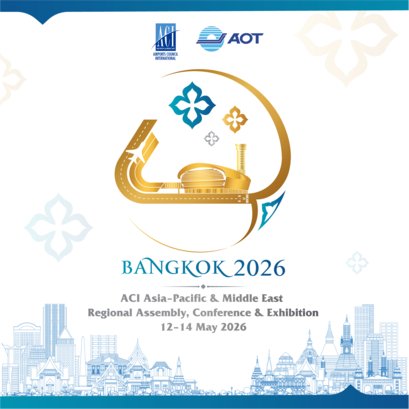
Delhi Airport Registers 1,000 TaxiBot Movements
- 07 May 2021
Delhi International Airport Limited (DIAL), a GMR Group-led consortium, today announced that it has completed 1,000 movements of sustainable taxing of aircraft at Delhi airport with Taxibot, a semi-robotic hybrid special purpose vehicle and thus helped the airport in significantly reducing carbon emission and saving fuel.
Introduced two years ago, the use of TaxiBot’s have helped in reducing around ~532 tonnes of Carbon at Delhi Airport. It also helped airlines in saving around ~214,000 litres of aviation turbine fuel (ATF), which supposed to be burned by the aircraft during taxiing.
Not only this, TaxiBot’s also helped the Delhi Airport in significantly in reducing the risk of foreign object debris (FOD) damage to the aircraft during its ground movement and taxiing noise at the airport. It is resourceful to ATC as TaxiBot’s offer faster apron clearance and assist airlines in reducing turnaround time for its ground operations.
Delhi Airport is the only airport in the world to adopt this green taxiing solution in May 2019.
Adoption of TaxiBot at Delhi Airport was DIAL’s one of the strategic initiatives to reduce on carbon emissions by planes, as part of DIAL’s objective of becoming a “net zero carbon emission airport” by 2030.
“Delhi Airport is one of the leading airports globally in terms of adopting environmental sustainability related initiatives. With the implementation and continuous use of TaxiBot, DIAL continues its journey of making Delhi Airport one of the most sustainable airports globally. The reduction in carbon emissions by use of TaxiBot establishes DIAL as an environment-friendly organisation. This is a major milestone not only for DIAL but also for aviation sector globally, in terms of promoting and adopting alternative and green taxiing solution,” said CEO-DIAL Mr. Videh Kumar Jaipuriar.
Delhi Airport has emerged as trendsetter in alternate taxiing solution by using TaxiBots as part of its regular operations. At present, two TaxiBots are operational with three airlines, and their numbers at Delhi Airport will go up to 15 over a period of four years.
TaxiBot is a semi-robotic towbarless aircraft movement equipment developed by the Israel Aerospace Industries. The 800-hp hybrid-electric engine, controlled by the pilot from the cockpit using the regular pilot controls, can move an aircraft from the terminal gate to the take-off point (taxi-out phase) and return it to the gate after landing (taxi-in phase).
Certified by India’s Civil Aviation Regulator, Directorate General of Civil Aviation (DGCA), Federal Aviation Authority (FAA) of the US, EASA of Europe and CAAI of Israel, TaxiBot is currently the only operational, environment-friendly alternative taxiing system in the market.
Delhi Airport has adopted Airport Carbon Accreditation program of Airport Council International (ACI) for managing greenhouse gas emissions and is currently certified at “Level 4+, Transition”. It is the first airport in Asia Pacific and only the second airport globally to achieve this level. It was also the first airport in Asia Pacific in 2016 to achieve “Level 3+, Neutrality” of ACI.
Some of the other key sustainability initiatives adopted by DIAL at Delhi Airport to reduce GHG emissions includes -- LEED (Gold) and IGBC (Platinum) certified green building infrastructure, 7.84 MW solar plant, energy management system certified under ISO-50001, energy efficient infrastructure, use of Bridge Mounted Equipment, adoption of Airport Collaborative Decision (A-CDM) making, adoption of electric mobility, water management infrastructure such as 16.6 MLD Zero Liquid Discharge Sewage Treatment Plant, rain water harvesting, multi modal connectivity etc.
Contact:
Ravi Krishna, Associate Manager, Corporate Communications
Email: Murari.RaviKrishna@gmrgroup.in
- CATEGORY
- COUNTRY / AREA
- India









